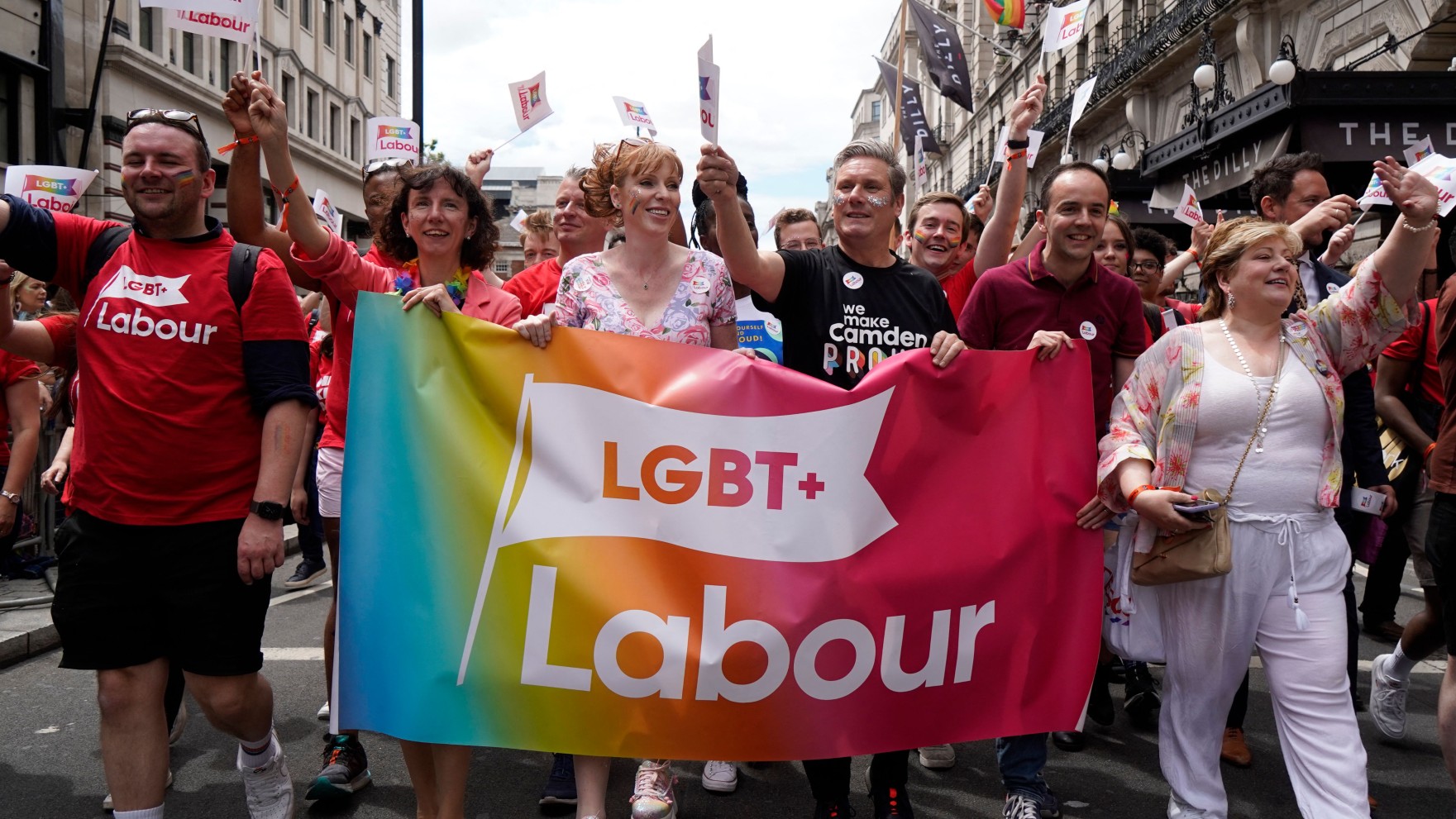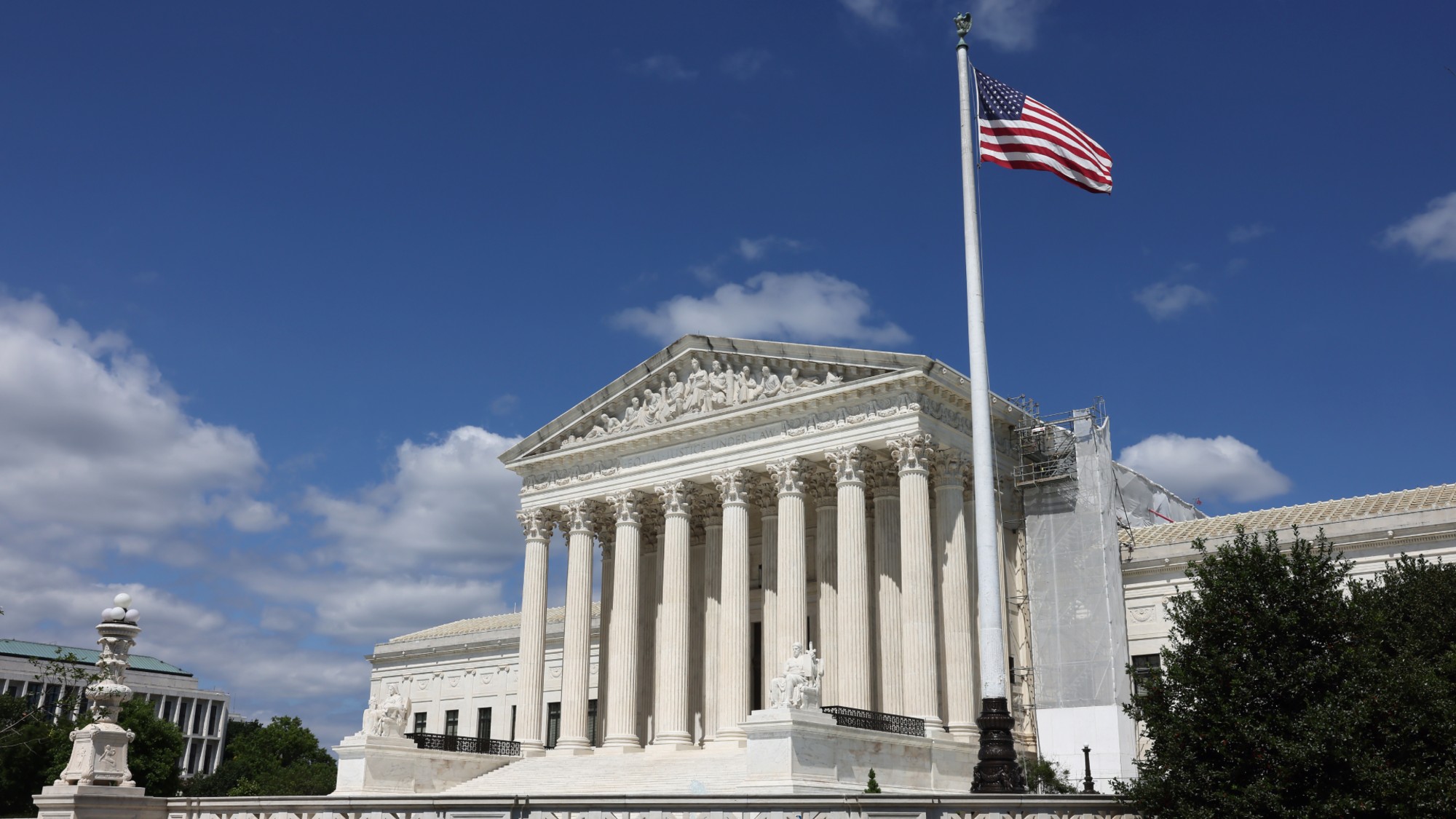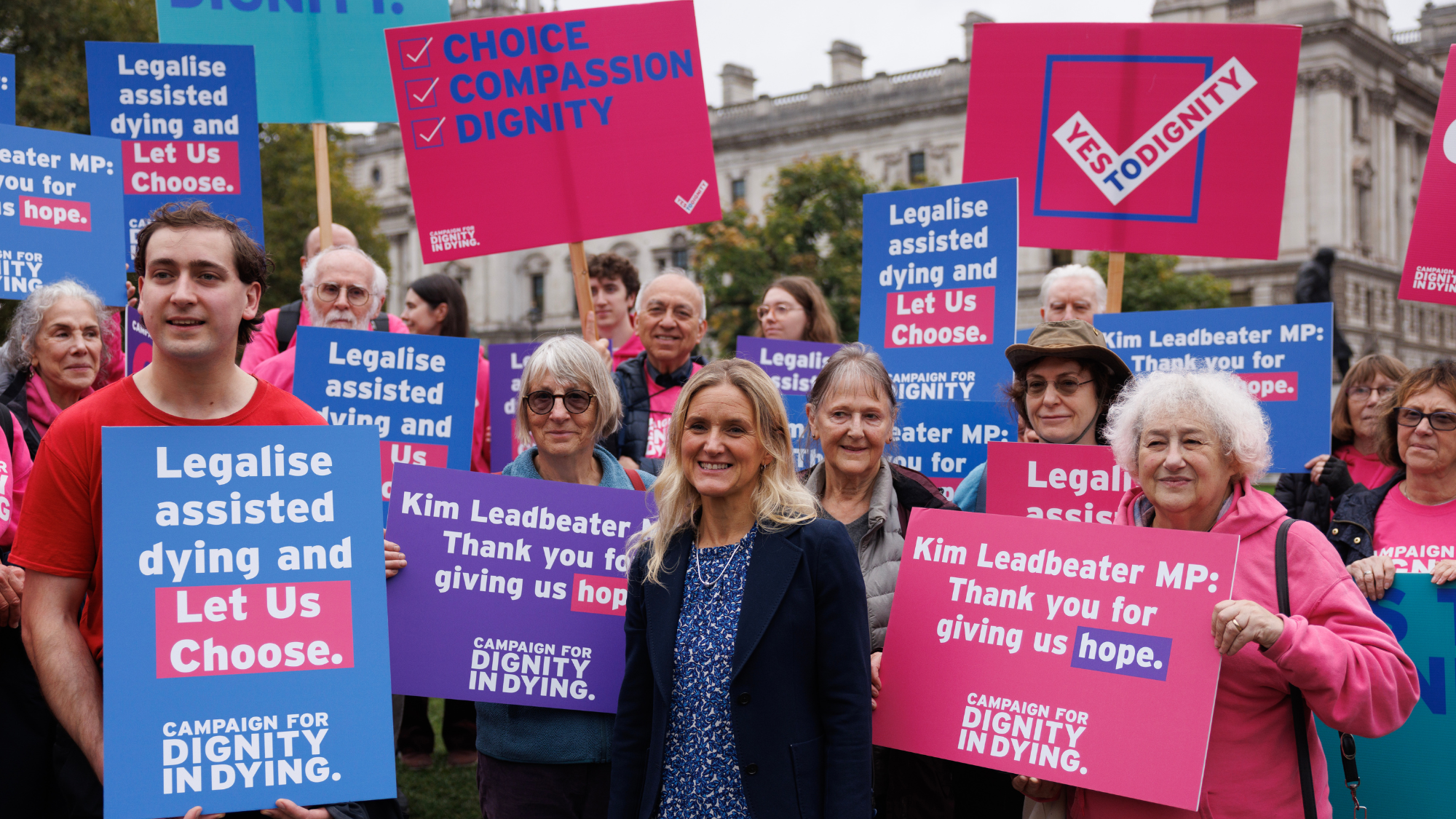Where does Labour stand on trans rights?
Party plans to 'modernise and simplify' process of changing gender and vows to scrap guidance on teaching gender ideology in schools

A free daily email with the biggest news stories of the day – and the best features from TheWeek.com
You are now subscribed
Your newsletter sign-up was successful
Labour has reaffirmed its commitment to "modernise, simplify and reform" the process of legally changing gender.
The party has said its plans will "remove indignities for trans people who deserve recognition and acceptance" but also provide "protections so you can't legally change your gender overnight".
In response, Tory leadership hopeful Kemi Badenoch, the women and equalities minister, said this would "unravel all the protections in the current system designed to protect women and girls" and create "loopholes for predators and bad-faith actors to infiltrate women-only spaces and put us at risk".
The Week
Escape your echo chamber. Get the facts behind the news, plus analysis from multiple perspectives.

Sign up for The Week's Free Newsletters
From our morning news briefing to a weekly Good News Newsletter, get the best of The Week delivered directly to your inbox.
From our morning news briefing to a weekly Good News Newsletter, get the best of The Week delivered directly to your inbox.
What is Labour's position?
Under existing laws, transgender people wishing to have their new gender legally recognised must obtain a gender recognition certificate (GRC).
Labour plans to remove what it terms outdated elements of this process, including consent from a spouse if the person is married and the requirement to prove the applicant has lived as their preferred gender for two years. This will be replaced with a two-year "reflection" period after the application has been submitted. A panel of doctors and lawyers that currently approves GRCs will also be replaced by a single doctor specialising in gender issues, who will be able to provide a medical report supporting the gender change.
Plans to introduce a controversial self-ID law, which would remove the need for a medical diagnosis altogether, have been abandoned.
Has Labour's stance changed?
The proposals set out this week are "largely the same" as those outlined last year by Labour's national policy forum, said The Guardian. Nonetheless, said The Times, they are "likely to heighten concern among critics over Labour's approach to transgender issues".
A free daily email with the biggest news stories of the day – and the best features from TheWeek.com
Keir Starmer appeared to change his position on transgender rights during Thursday's BBC "Question Time" election special. Last year, the Labour leader said "99.9% of women" do not have a penis and in 2021 stated it was "not right" for Labour MP Rosie Duffield to say that "only women have a cervix". But on Thursday night he said he agreed with former Labour leader Tony Blair's position that "biologically, a woman is with a vagina and a man is with a penis".
In April, shadow cabinet member Louise Haigh suggested Labour should be a "safe space" for gender-critical but not transphobic opinions, amid fresh party tensions over gender in the wake of the Cass review.
Speaking on Times Radio this morning, the shadow health secretary Wes Streeting said: "I think at times in pursuit of inclusion, we've ended up in a position where women have felt excluded, biological women have felt excluded." He added that he was "very optimistic" that Labour could find a way to address both the rights of biological women and trans women in the debate.
How do Labour compare to the Conservatives?
As part of its manifesto, the Conservatives have promised to rewrite the Equality Act so that it only offers protections on the basis of a person's biological sex.
At present, sex, along with race, disability and sexual orientation, is a protected characteristic and the act makes it illegal to discriminate against someone on those grounds. The Conservatives do not want the term "sex" to apply to those who have changed their legal sex, said Context, in order to "protect female-only spaces and competitiveness in sport".
In contrast, Labour has said it supports the Equality Act as it is, "including its exemptions that allow for the provision of single-sex spaces in certain circumstances", said the news site.
The two parties also differ on how children are taught about sex and gender in schools.
Shadow education secretary Bridget Phillipson has suggested she would scrap planned Tory guidelines on "gender ideology" in schools. The guidance, which was set to come into effect in the coming months, says pupils should not be taught
"that people can be born the wrong sex and that they can change their identity to the opposite sex or other categories such as 'non-binary'", said The Telegraph.
Responding to accusations that the wording had "drifted far too much into partisan and unnecessary language", Education Secretary Gillian Keegan warned a Labour government "would play politics with the lives of our children by ripping up guidance on gender-questioning children".
-
 What is the endgame in the DHS shutdown?
What is the endgame in the DHS shutdown?Today’s Big Question Democrats want to rein in ICE’s immigration crackdown
-
 ‘Poor time management isn’t just an inconvenience’
‘Poor time management isn’t just an inconvenience’Instant Opinion Opinion, comment and editorials of the day
-
 Bad Bunny’s Super Bowl: A win for unity
Bad Bunny’s Super Bowl: A win for unityFeature The global superstar's halftime show was a celebration for everyone to enjoy
-
 Should the right to trial by jury be untouchable?
Should the right to trial by jury be untouchable?Today’s Big Question With a crown court backlog of around 80,000 cases, David Lammy says ‘status quo cannot go on’
-
 Labour’s dilemma on workers’ rights
Labour’s dilemma on workers’ rightsThe Explainer TUC says Employment Rights Bill is ‘essential to better quality, more secure jobs’ but critics warn of impact on economic growth
-
 Battle of Orgreave: the long wait for answers
Battle of Orgreave: the long wait for answersThe Explainer Public inquiry into 1984 clash between police and striking miners a 'landmark moment for justice and accountability', says South Yorkshire mayor
-
 How far does religious freedom go in prison? The Supreme Court will decide.
How far does religious freedom go in prison? The Supreme Court will decide.The Explainer The plaintiff was allegedly forced to cut his hair, which he kept long for religious reasons
-
 The Supreme Court case that could forge a new path to sue the FBI
The Supreme Court case that could forge a new path to sue the FBIThe Explainer The case arose after the FBI admitted to raiding the wrong house in 2017
-
 'Libel and lies': Benjamin Netanyahu's corruption trial
'Libel and lies': Benjamin Netanyahu's corruption trialThe Explainer Israeli PM takes the stand on charges his supporters say are cooked up by a 'liberal deep state'
-
 Assisted dying: what can we learn from other countries?
Assisted dying: what can we learn from other countries?The Explainer A look at the world's right to die laws as MPs debate Kim Leadbeater's proposed bill
-
 The rules for armed police in the UK
The rules for armed police in the UKThe Explainer What the law says about when police officers can open fire in Britain